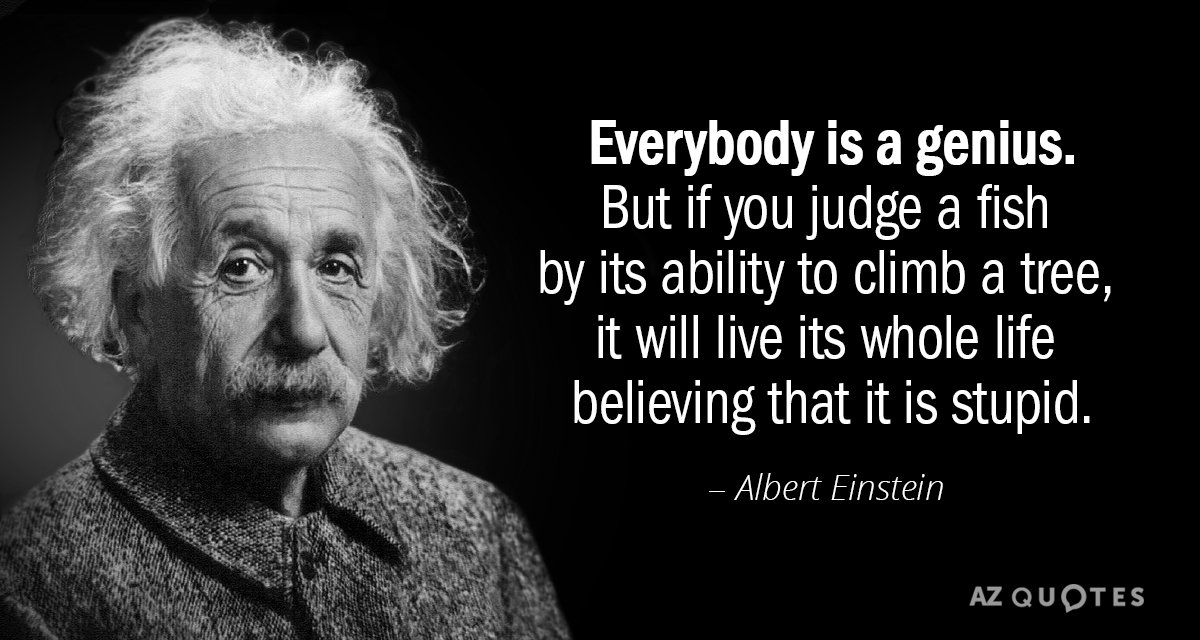You’re playing a game, and all of a sudden, you get a little notification:
…or

And you feel a little thrill. You just achieved something pretty cool! After all, you were given a trophy or an achievement, and now you want to share it. So you tell your friend or take to social media, and are met with praise for your achievement, but then there is always that one person who has gotten the trophy and the one on the harder difficulty, or platinumed a game (or six), and they just so casually drop it that you think that maybe your great achievement wasn’t quite good enough.
What Gives? Social Hierarchy
Social hierarchy is a concept to familiar to many species; in fact, it’s familiar to any species that has a defined social order, from ants to bees to dogs to dolphins to rats to gorillas to people. This kind of hierarchy helps us navigate through social interactions, providing clear expectations for interactions and clear “roles” for each member in the hierarchy. While some may bristle at the idea, hierarchies are, at their core, neither good nor bad. They exist, and the extent to which they are implemented determines whether it encourages people to better themselves in the eyes of their peers – achieving a higher rank – or makes people feel unwelcome at best and oppressed at worst.

Within Society with a capital S, there are subgroups with their own hierarchies. Academic institutions, governments, families, and even communities of hobbyists have their own hierarchies that must be adhered to. As such, it’s not surprising that gamers have also tried to establish a hierarchy within the gaming sphere, trying to prove (or gain) status through in-game achievements.
Like the trophy.
Trophies and Achievements
Trophies and other in-game achievements have so much potential for good that it seems almost unfair to blame them for the unnecessary posturing that happens in the gaming community, but to give credit where it is do, trophies can be used as a force for good as much as a force for posturing and gatekeeping.
One shining positive for in-game trophies is the sense of personal achievement that they induce. It’s one thing to expect a trophy and get it – for instance, because you completed a plot point in the game – and quite another to be playing and suddenly be surprised by the trophy notification, telling you that you did something cool. We all like achieving things and so seeing that rewarded is immensely gratifying.

Trophies can also encourage gamers to play it in a way that they might not have otherwise done. For instance, InFamous for the Playstation 3 has 50 trophies that can be earned during gameplay. Some of these are story-related, and in the case of inFamous that means that you’ll have to have one “good” playthrough and one “evil” playthrough to achieve all of the story-driven trophies. This by itself already forces the player to play differently than he or she might normally do. I tend toward wanting to be a “hero” when I play games, so being forced to be the supervillain was an interesting experience as I tried to distance myself from my own character.
How easily I was manipulated into harming innocent people, all for the sake of an in-game trophy. But that’s a discussion for another time.
![]()
Some of the other trophies in inFamous are skill-based, challenging the player to, for instance, kill a certain number of enemies while riding on top of a moving train or vehicle.Or to use a “thunder drop” ability and (basically) fall 500 meters off a building onto an enemy. Are these things that I would have sought out to do normally? Nope, but the trophies made me curious, and I practiced and practiced these insane maneuvers until I was finally successful.
And boy was it fun! All precipitated by an in-game trophy.

These are fairly innocuous uses of trophies, both in-game and by the player. They provide intrinsic rewards and only cost the player a little bit of time. We start getting into a hazy grey area when players start using trophies to demonstrate – or even attempt to enforce – superiority over other gamers because of their trophy achievements.
Social Currency, Gold, and Platinum
At this point, the trophies/gamer score becomes a kind of contrived social currency, with the player attempting to cash in his/her trophies for social standing, prestige, and authority.
A Brief Definition
Social currency is defined as (paraphrasing) the resources gleaned from a presence in a social network or community. This can relate to a brand – meaning the value consumers associate with the brand based on “word of mouth” or other socially-driven reputation means – or to a person.

What this means is that the more “social currency” we have, the more valuable we are in the eyes of The Target Group we are interacting in. Being more valuable can result in better things for us (or our brand) – authority, respect, prestige, money/other resources.
All that Glitters
When it comes to society, we have more-or-less well-established ideas of the things that add value to a person’s standing. Usually,these things relate to either altruistic actions a person takes for the betterment of society, even moreso if it is to the detriment of themselves, or to amazing feats that a person accomplishes that cannot otherwise be achieved by the average person, such as immense artistic talent, intelligence, or physical prowess.

But the thing is that respect can only be given. It cannot be taken.
And so it is with social currency.
Why Trophies Can’t Buy Love
It’s possible that trophies could have been, at one point, a way for gamers to establish some sort of social standing. After all, the people who platinum games spend more time with a game than people who do not platinum games (although this isn’t necessarily true), and have taken the time to play the game in the many different ways the developer has suggested. This shows dedication and skill that other gamers might not otherwise have.
Except it doesn’t. When people brag about their platinum trophies, or asserts that the amount of trophies they have somehow accords them more social standing, the response is often disdainful. Often, the social response is something akin to a slow clap, followed by a sarcastic “hooray for you for spending 1000 hours playing the same game.”

So why does this type of bragging persist? What might be the reason to force such a scorecard onto other people for something that is not only trivial, but so often socially seen as worthless in regards to social currency?
Society and Competition
The simple answer is that people like competition. Plain and simple. If we feel like we are in competition with each other, it motivates us to strive to be better than we are, and motivates us to win.
Of course, this means that we need to feel in competition with each other in order for “winning” or “losing” to mean anything from a social standpoint. If there is no competition/feeling of competition, then someone saying “I win” is meaningless.

For trophies, there is generally a feeling of “sure, if I had more time to sink into a game, I could do that, too,” so when a person brags about their trophies, it has as much social meaning as bragging about how much free time you have. People don’t compete for free time so, in plain English, no one feels in competition, and so it’s only seen as annoying when someone jumps around saying they are the best at having free time.
So Are Trophies Good or Bad?
Like everything else, they are a neutral thing. It is how they are used. Are guns good or bad? You might use them to hunt for food, or you might use them to kill innocent people. When it comes to games, a player might collect trophies for his or her own enjoyment or to feel a sense of accomplishment. Maybe the player collects trophies to experience the game in different ways. In these cases, trophies are a good thing. And, you’ll notice, that in these situation, people are much more willing to praise the person’s accomplishments.
But, if a trophy is used to beat other people over the heads and declare them inadequate as gamers, or when then are used as a way to exert (false) authority over another person, or to demean them in some way, then instead of unlocking achievement, they instead become embarrassing social demerits.
What is you opinion on trophies? Have you ever been trophy-shamed? What was the most fun you had earning a trophy/in-game achievement? Let me know in the comments!
Thanks for stopping by, and I’ll see you soon!
~Athena
**Do you like what you’ve read?** Become a revered *Aegis of AmbiGaming* and show your support for small creators and for video games as a serious, viable, and relevant medium!
For more on this topic:
https://www.sciencedirect.com/science/article/pii/0191886995000355
https://epdf.pub/structural-holes-the-social-structure-of-competition.html
https://www.sciencedirect.com/topics/medicine-and-dentistry/social-hierarchy
http://gamestudies.org/1101/articles/jakobsson
https://www.psychologytoday.com/us/blog/socially-relevant/201506/the-psychology-competition
https://www.gamespot.com/forums/playstation-nation-1000002/so-whats-the-point-of-trophy-26543495/


“The best at having free time” – I found my new bio for my PSN profile! 😅 I do have a few conflicted feelings about trophies and achievements. While spending 100+ hours in Breath of the Wild, I found myself thinking “It sucks that you don’t even get an trophies for finishing all the shrines or getting all the Korok seeds”, but then thought “ am I really upset that there’s no icon on my screen that I can point to and brag about my accomplishment?” I’m simply enjoying what I’m playing so having “receipts” to show how I spend my time doesn’t seem quite as significant. Don’t even getting me started on grinding away levels and boxes for character skins in online games… 😉
LikeLiked by 1 person
Yes! That would be an amazing bio! haha
Yeah they’re definitely something we’ve come to expect (theand that little dopamine rush that comes with it). But you’re right that the most important thing it’s having fun with the game.
Grinding for skins? Sound like winning at free time 😉
LikeLiked by 1 person
I used to be really into trophies and achievements. Which, in retrospect, is really bizarre to me. My Xbox 360 hasn’t been connected to the internet for years, so literally nobody is seeing anything I accomplished there, and I have a grand total of one person on my Playstation friends list. My Steam list is a little more robust, but the trophies there are not front and center. So basically nobody is seeing these little badoops I’m earning.
Still, it can be fun getting them. It’s a point of pride going on the Playstation and checking out how many super rare trophies I’ve gotten that so few others have. And even just the simple ones, unlocking them feels like a sense of accomplishment, something that will linger with me after I stop playing the game. And yeah, many trophies can really change the way you play. My favorite is the trophy for beating Mirror’s Edge without killing anybody. It’s actually not that hard to do, but it does completely change the way you play, and I’d have never have done it without there being a trophy there for it. I think that’s the most significant case of a trophy changing the game for me.
LikeLiked by 1 person
You’ve got a point. Sometimes the backups you’ve earned are important because they are something that you have earned. I’m the same way. I like looking at the trophies I’ve earned because i know what went in to them, or feel good for getting a rare one.
That’s awesome about Mirror’s Edge. I haven’t played it but any time a game is played as a “no kill” run is something really special.
LikeLiked by 1 person
Reblogged this on DDOCentral.
LikeLike
Can’t ‘like’ posts for some reason.. Here goes an old scool “lol nice 😀 luv ur post!”
LikeLiked by 1 person
Hey there! Good to see you! 😀
Thanks! I’m glad you luv’d it!
LikeLiked by 1 person
I actually hide my trophies to reduce competition among peers. Some of the guys are just naturally competitive. It gives me a headache. I only 100 percent a game if I really enjoy the game, but it takes me ages to get it, sometimes close to a year since I don’t play every day.
LikeLiked by 1 person
Yikes. That’s a shame, though, that you have to hide a gaming trophy list specifically because people make a fuss about it.
And same. I’m still on a quest to platinum Dragon Age: Origins; if I enjoy the game I’ll peek more at the trophies, but otherwise I just play to have fun.
LikeLiked by 1 person
That’s one game I want to play that I have not finished: Dragon Age Origins. I have the PS3 version but the loading takes forever. I heard it’s better to play on the PC.
LikeLiked by 1 person
It’s a great game! Regarding which version is better, I suppose it depends what you mean. The PS3 version has loading times, but I was not bothered by them. The interface is a little more tactical on the PC, because you can pause and direct each member of your party individually, and on the PS3 version you just set up a series of tactics that are used by any character that you are not directly controlling. The controls on PC are right there on the screen and on PS3 they are mapped to different buttons. The only thing I liked better about the PC was the tactical camera angle, otherwise, I’ve enjoyed all my playthroughs on the PS3 version quite a bit and didn’t find one particularly easier, harder, better, or worse; they really were just different.
LikeLiked by 1 person
I guess I should give the game another try. It will help me save money by not spending on new titles. Thanks for the information.
LikeLiked by 1 person